Spelling practice Phonics Worksheets for Ages 7-9
45 filtered results
-
From - To
Enhance your child's spelling skills with our engaging Phonics Worksheets designed for ages 7-9! These printable resources provide fun and interactive activities that help reinforce phonemic awareness and spelling proficiency. Each worksheet targets essential sounds and phonics patterns, allowing children to practice identifying and spelling words correctly. Our carefully curated exercises promote independent learning while ensuring that your child develops a strong foundation in language arts. Perfect for home or classroom use, these worksheets make spelling practice enjoyable and effective. Explore a variety of activities to ignite your child’s love for learning and empower them to become confident spellers!
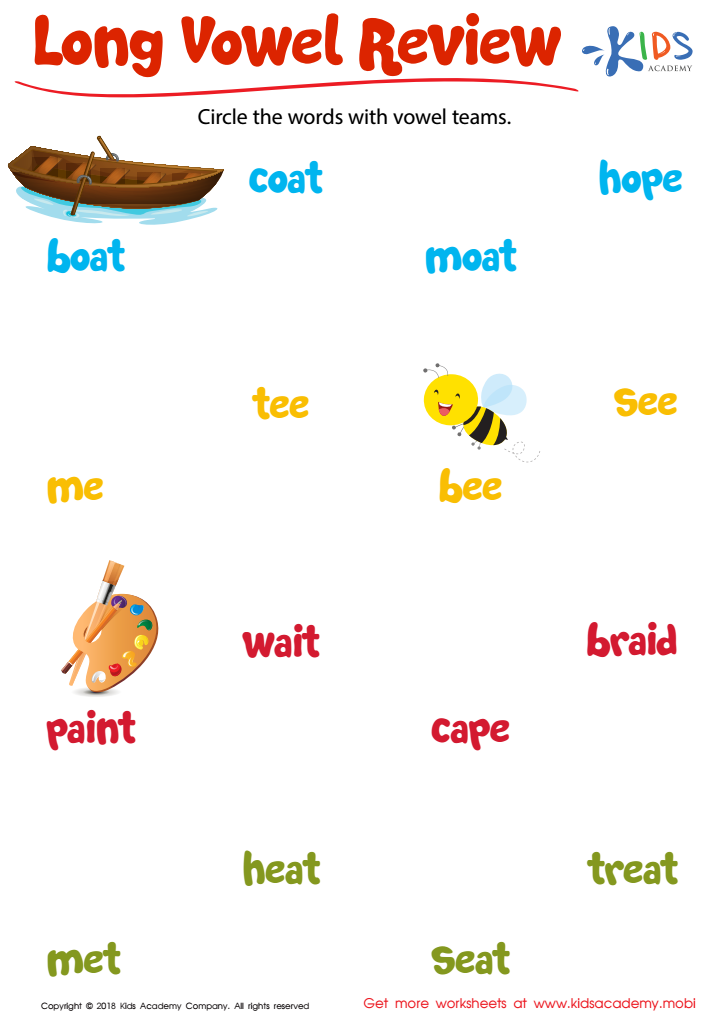

Long Vowel Review Worksheet
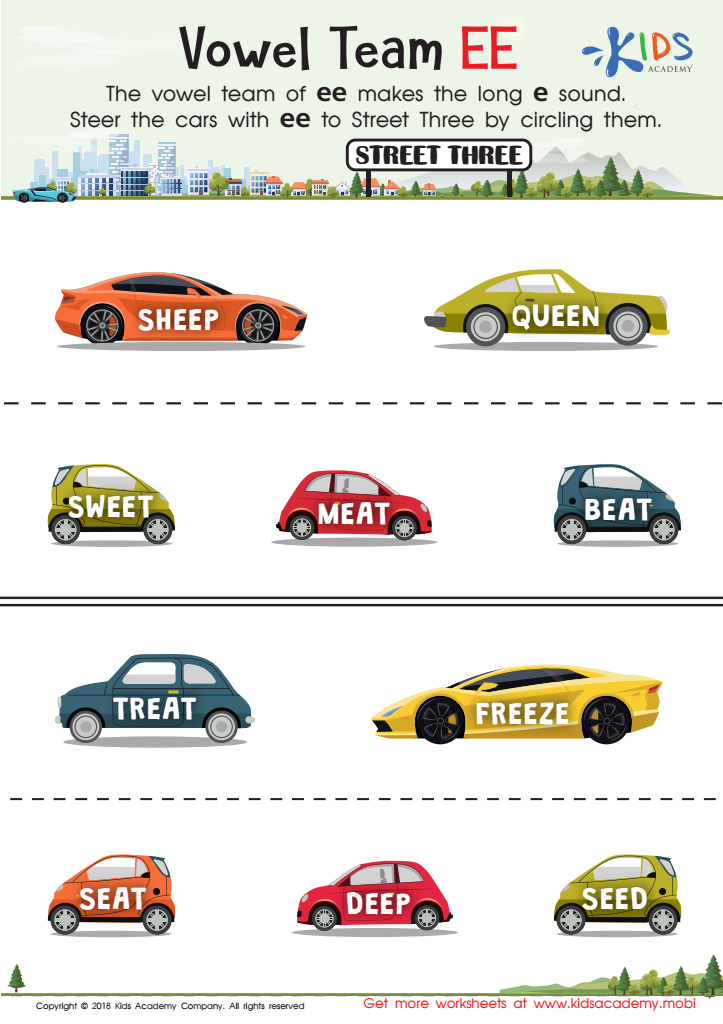

Vowel team ee Worksheet


Let's Check Long Vowels: Assessment Worksheet
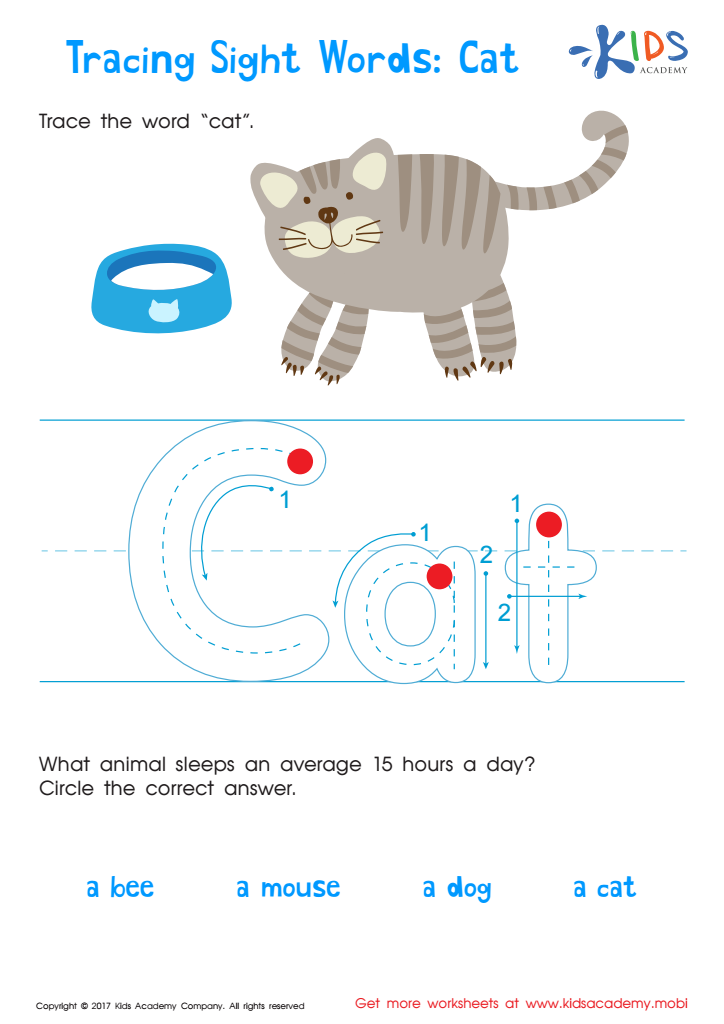

Cat Printable Sight Words Worksheet
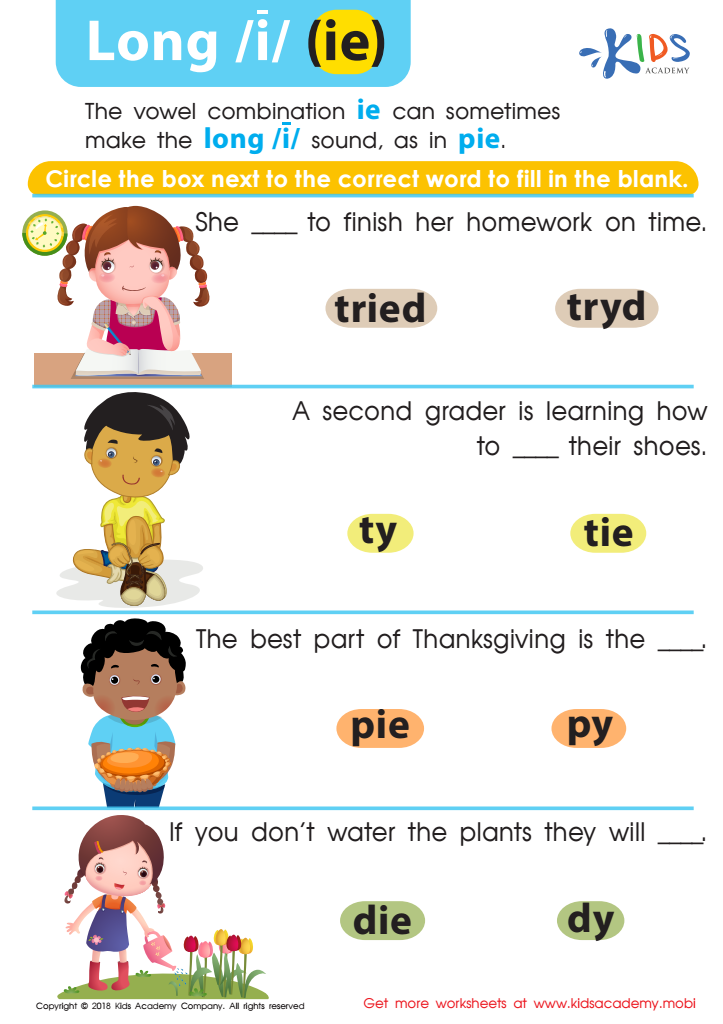

Reading: Long I and IE Worksheet
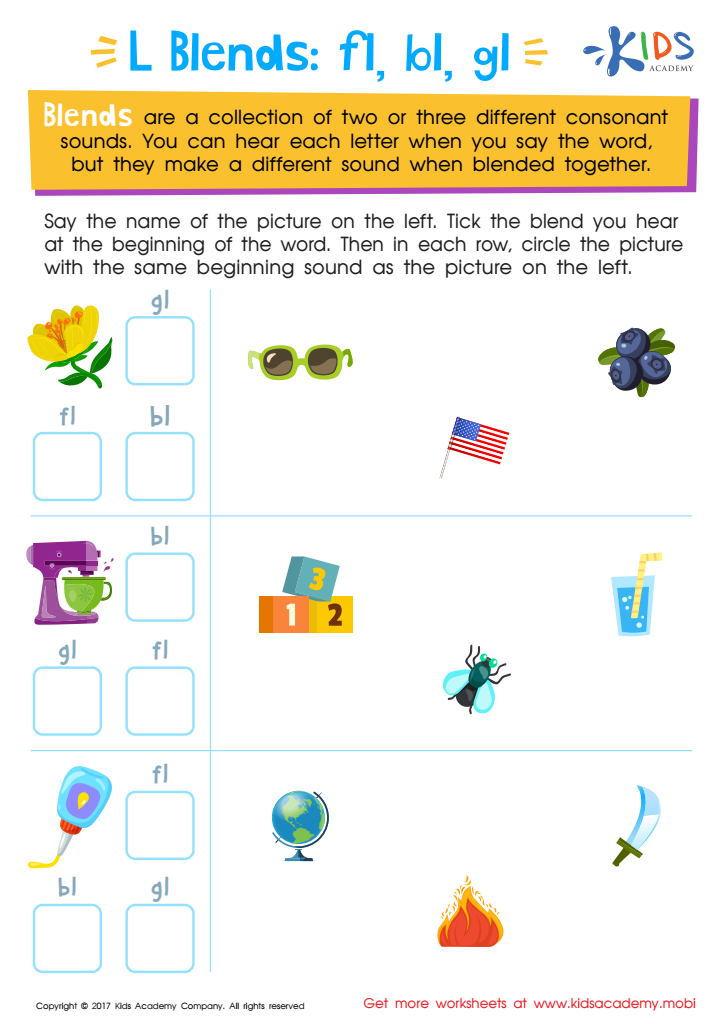

Blending Consonants: "Fl", "Bl" and "Gl" Printable
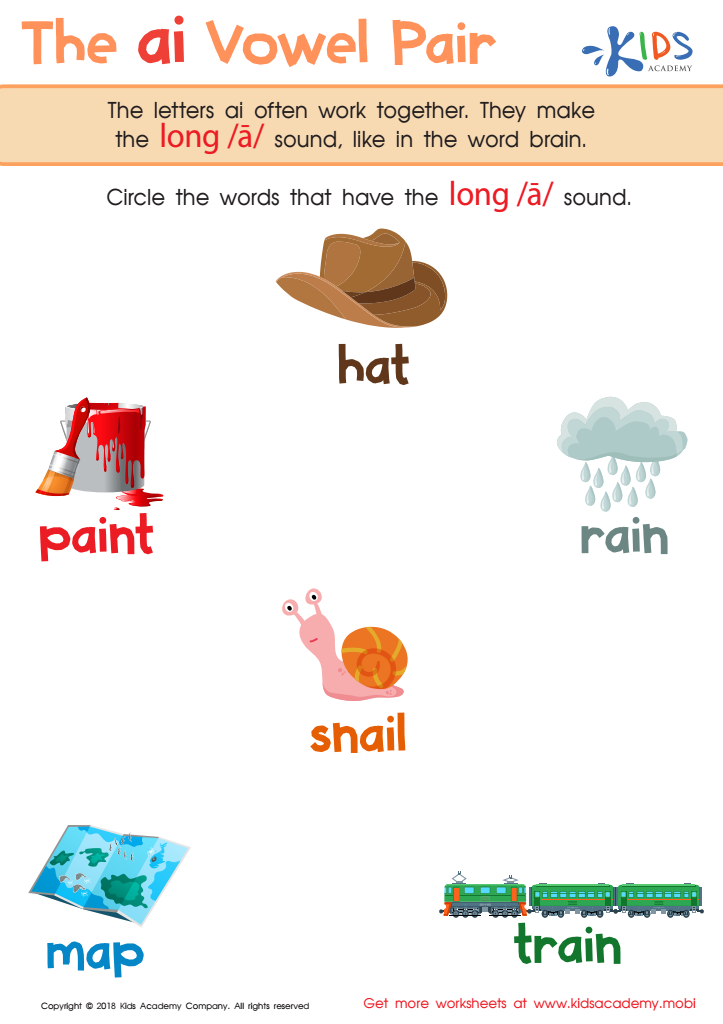

The AI Vowel Pair Worksheet
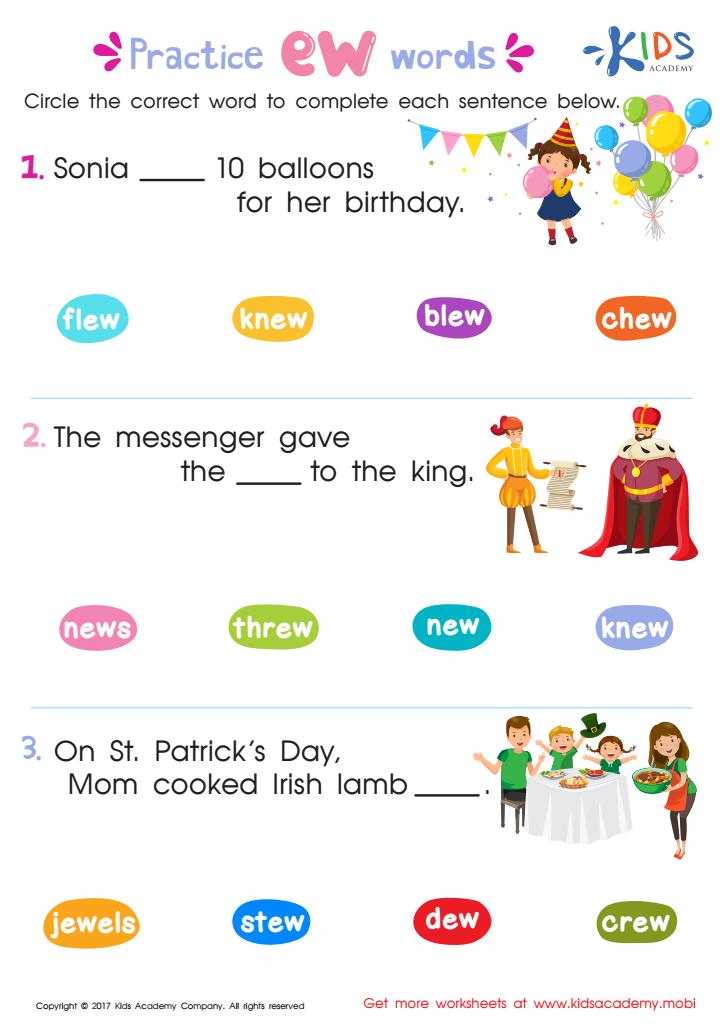

EW Words Worksheet
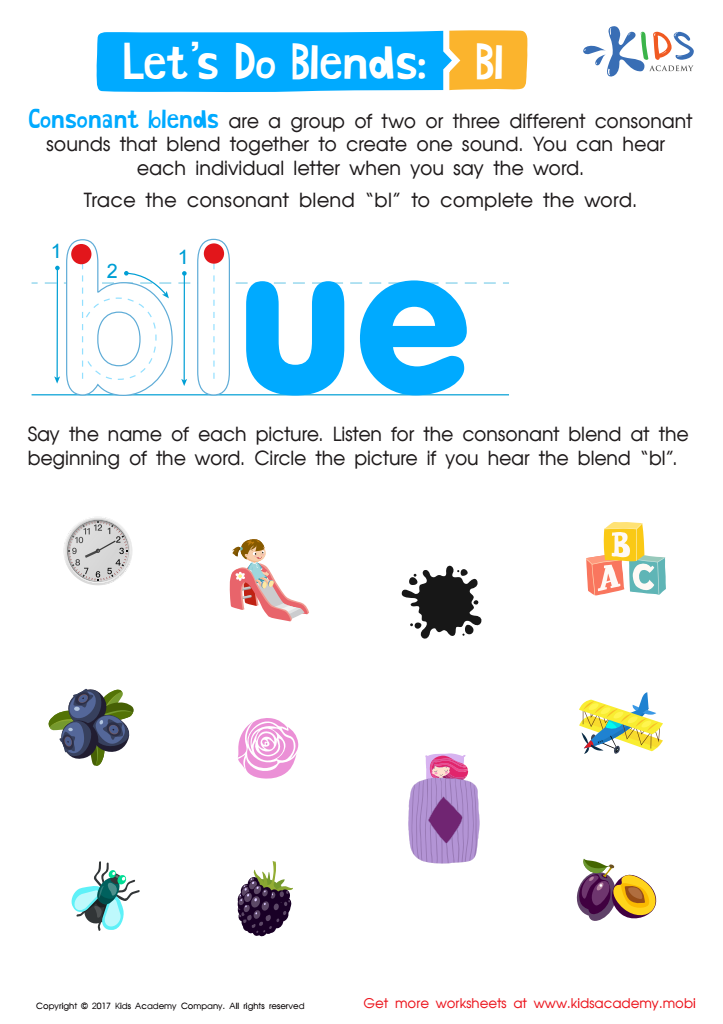

Beginning Blends: "Bl" Words Worksheet
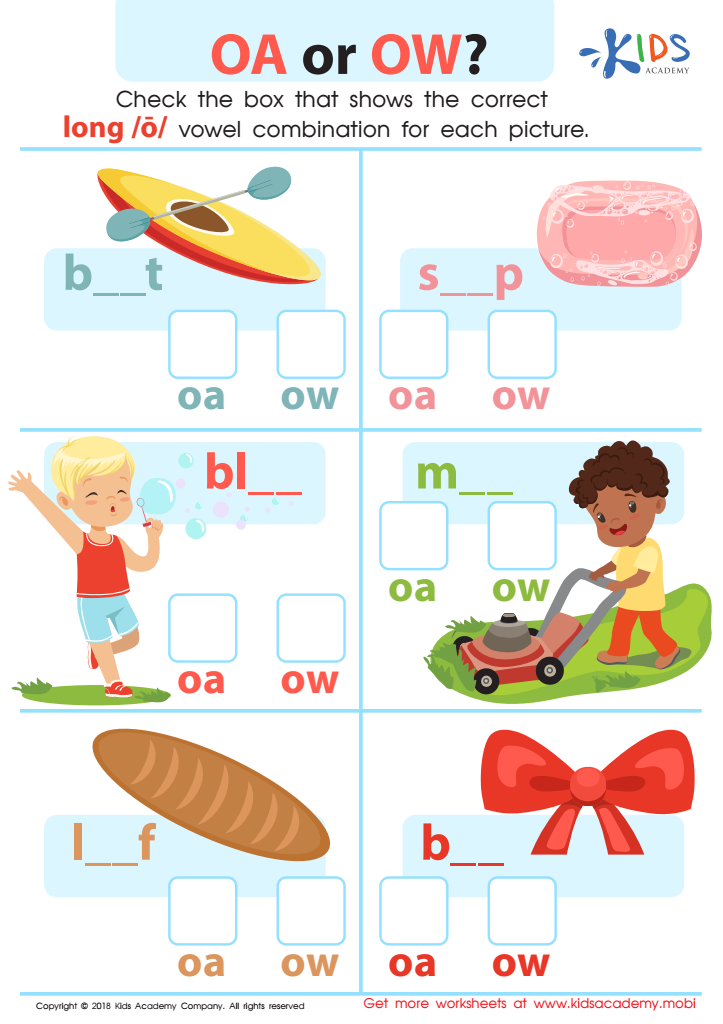

Reading: OA or OW Worksheet


Short Vowels /e/, /i/, and /u/ Worksheet
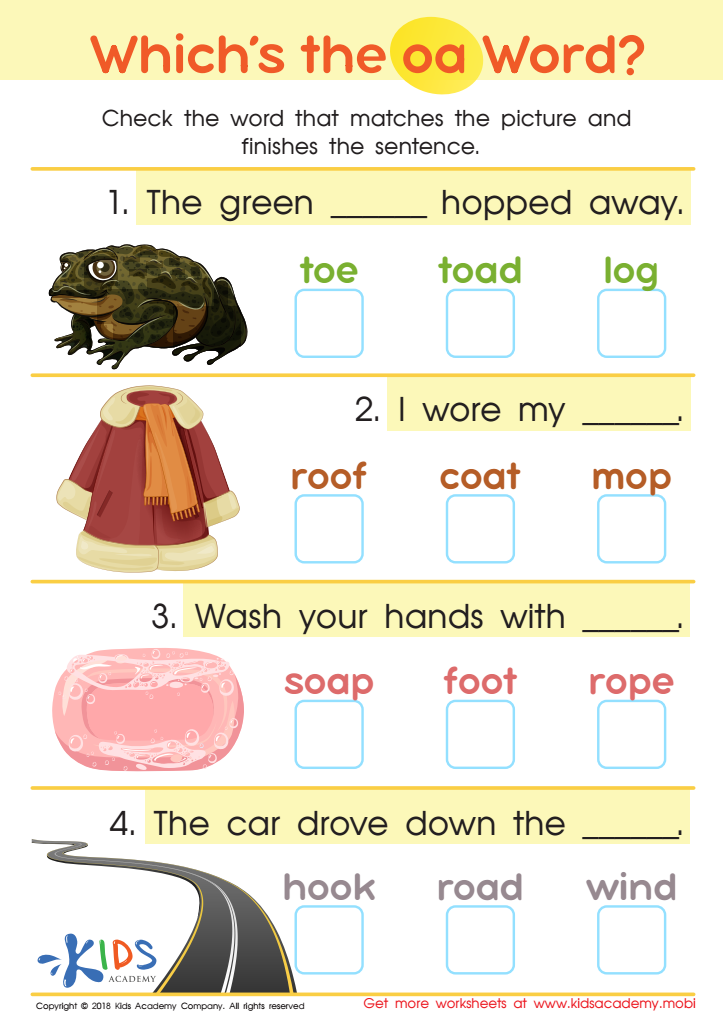

Which's the OA Word? Worksheet
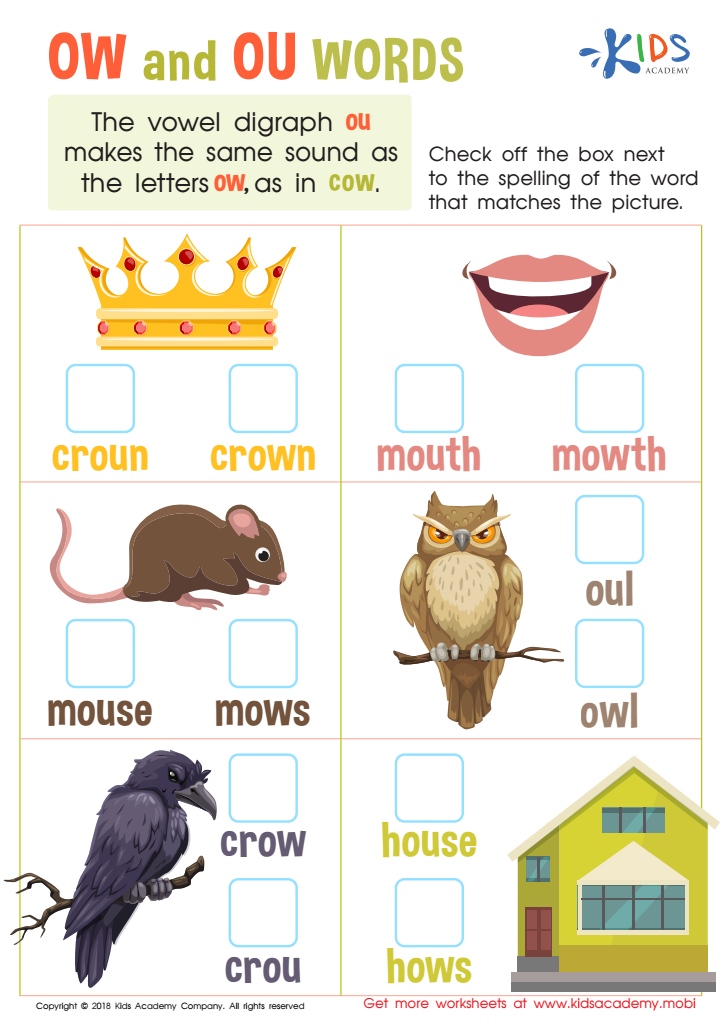

Reading: OW and OU Words Worksheet
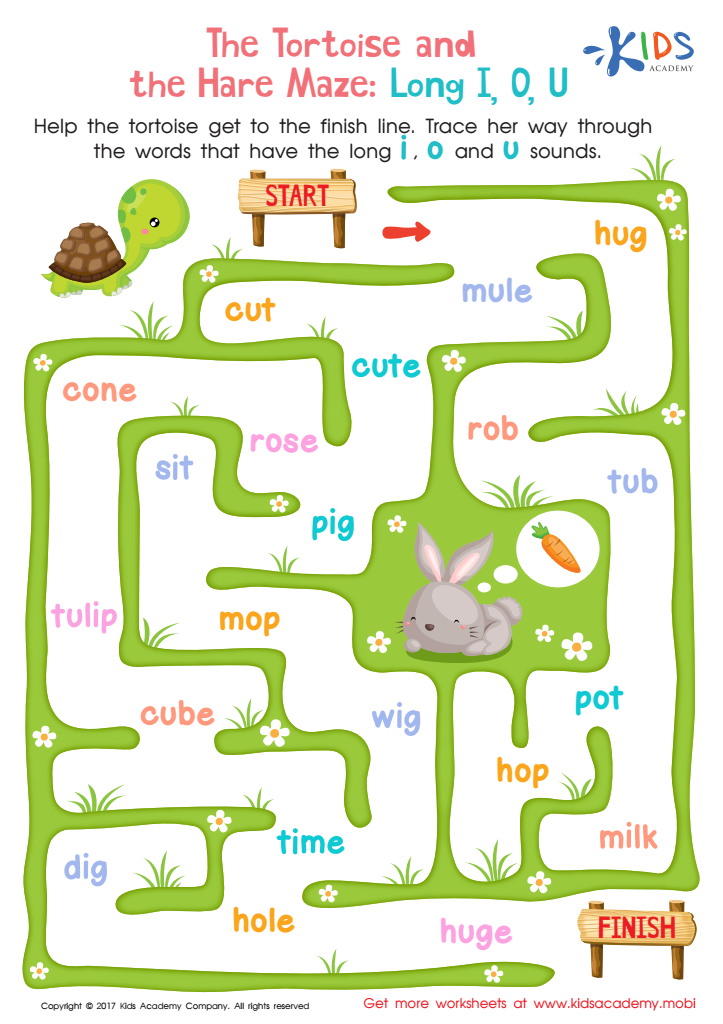

Long I, O, U Words Worksheet
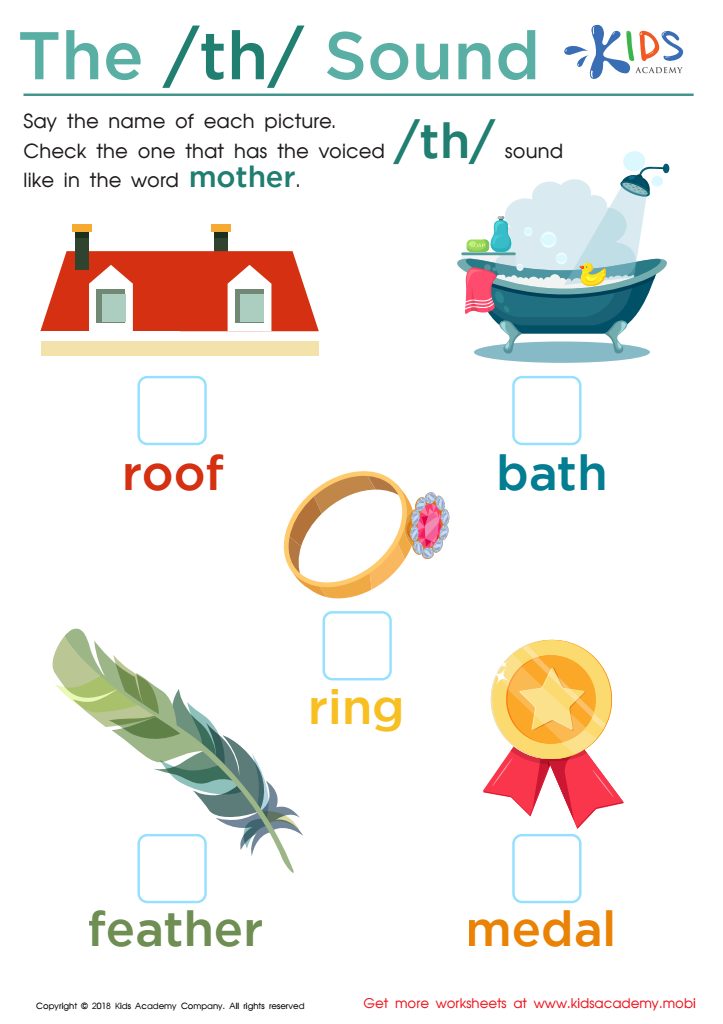

The /th/ Sound Worksheet
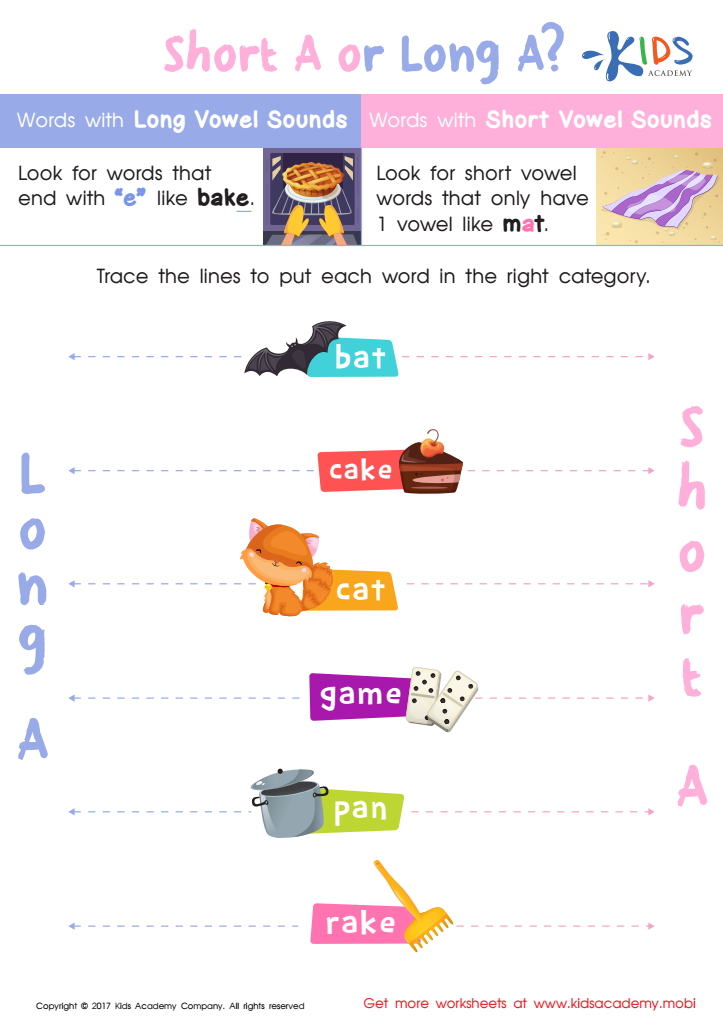

Short /a/ or Long /a/? Worksheet
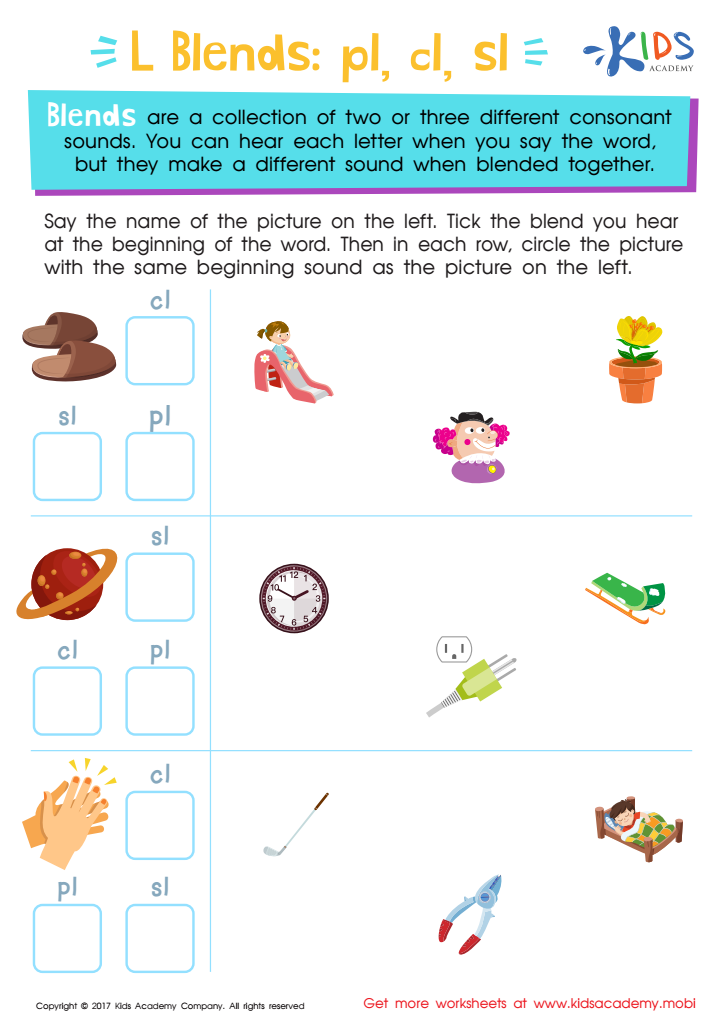

L Blends: "Pl", "Cl" and "Sl" Printable


Short Vowel Eggs Worksheet
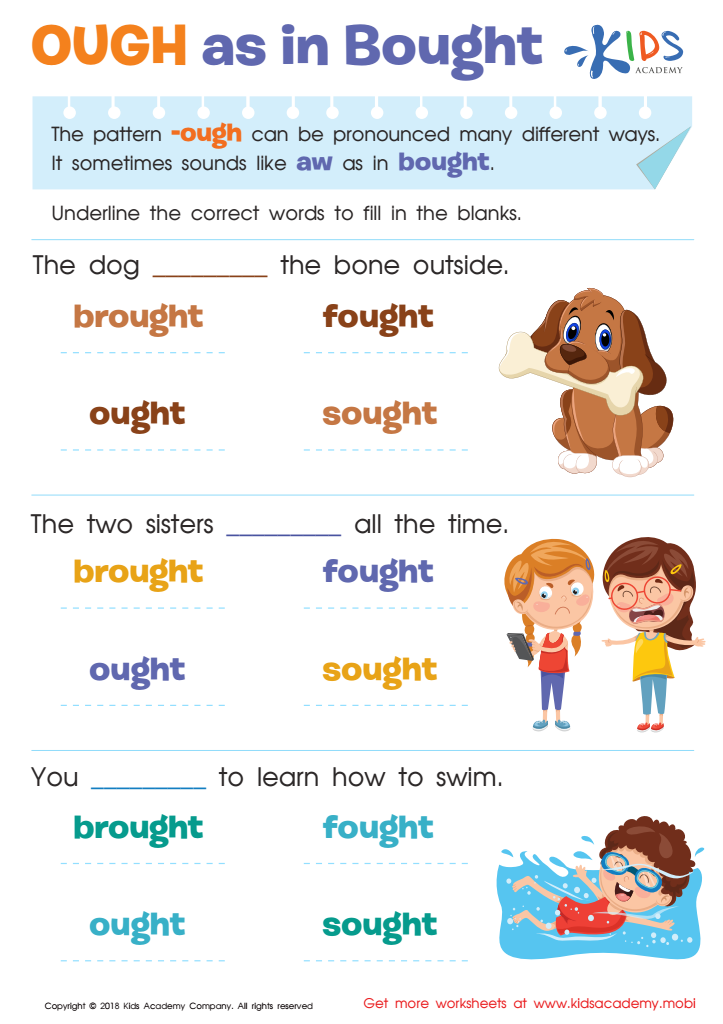

OUGH as in Bought Worksheet
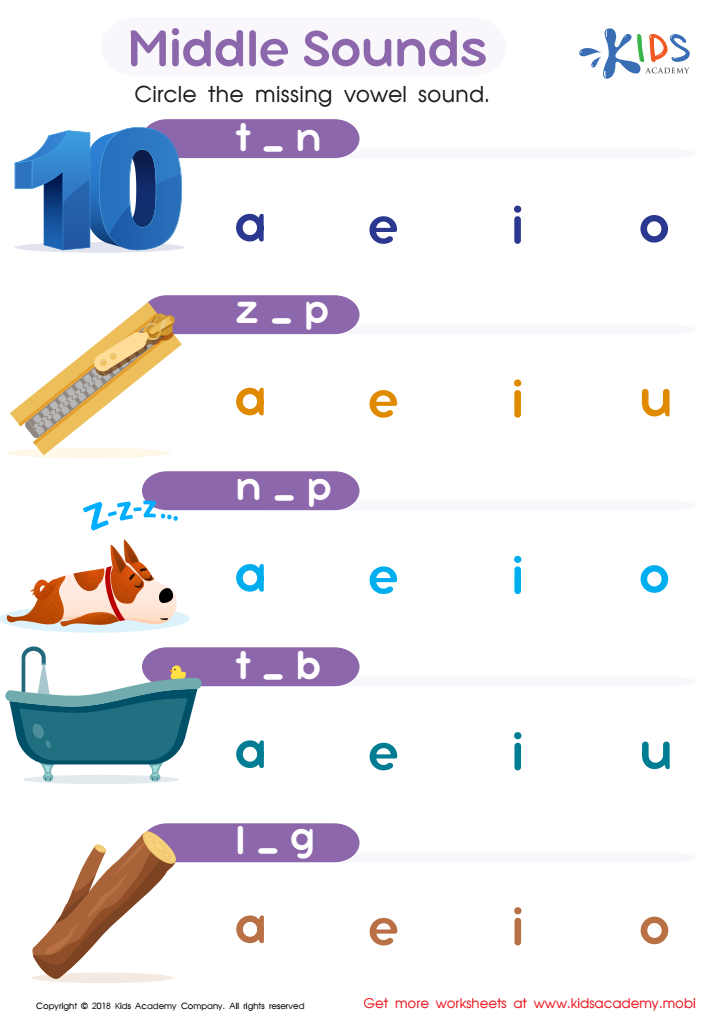

Middle Sounds Worksheet
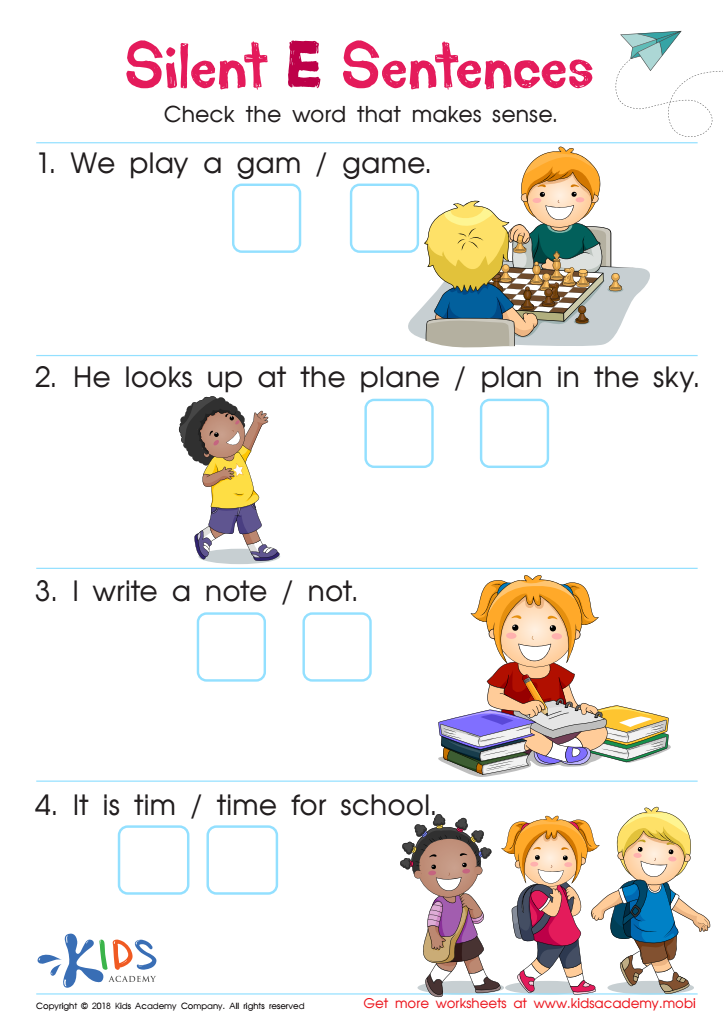

Silent E Sentences Worksheet
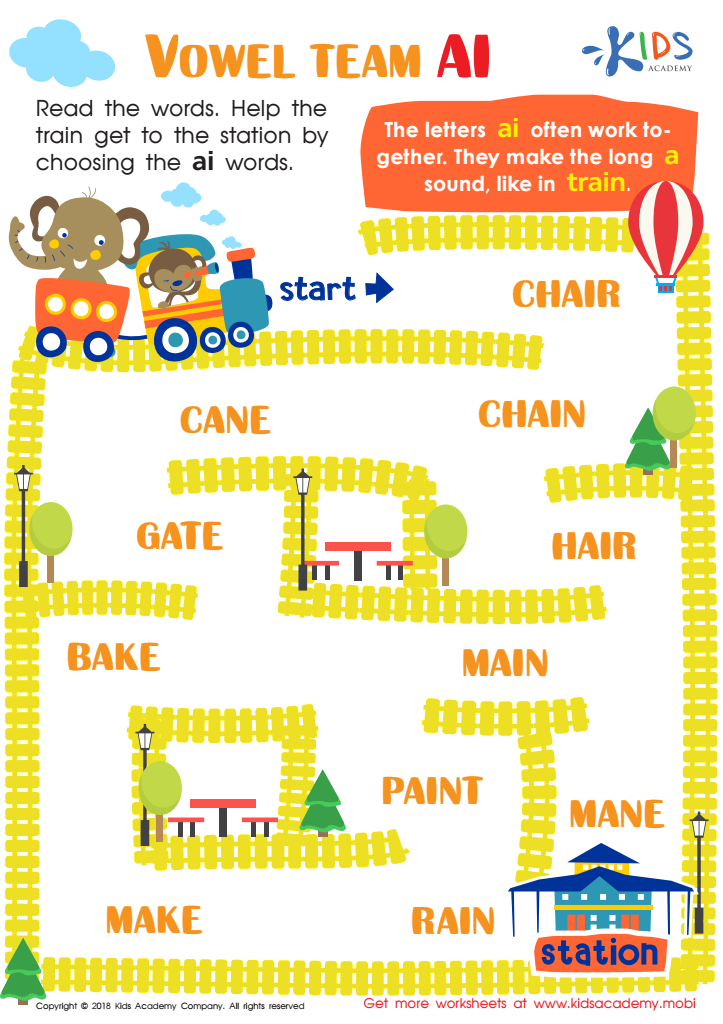

Vowel team ai Worksheet
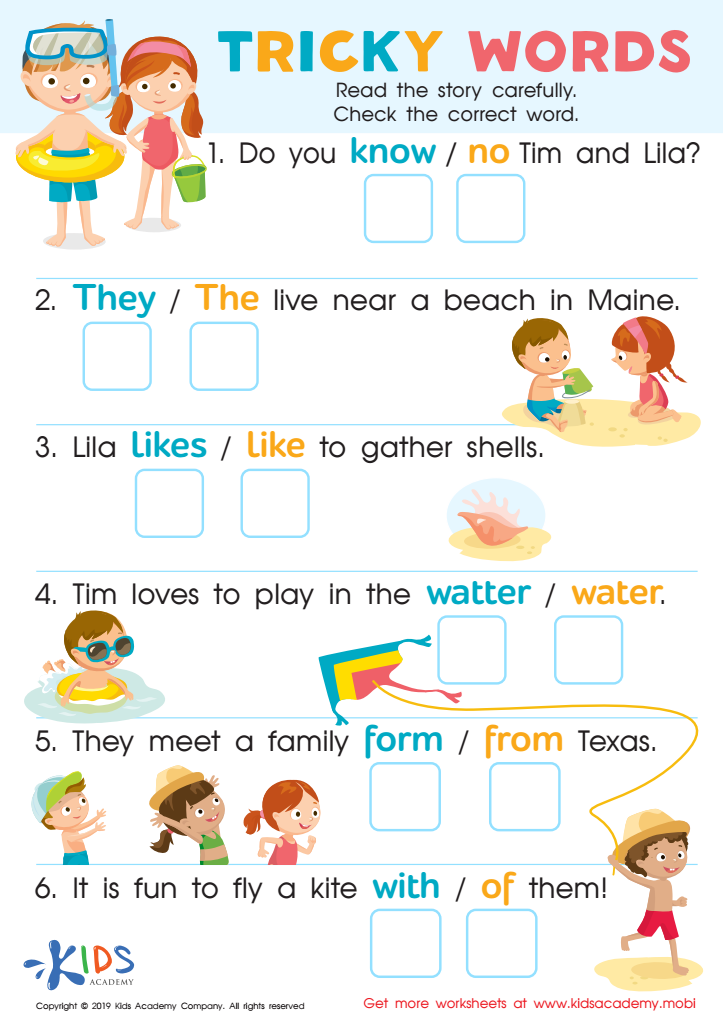

Tricky Words Worksheet
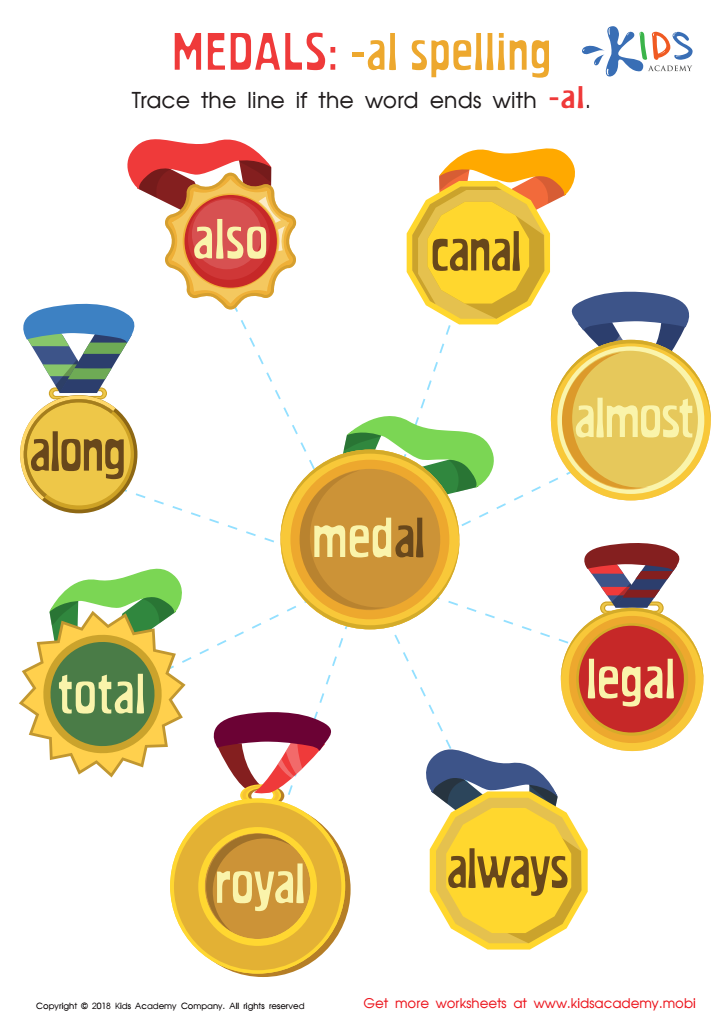

Medals: Al Spelling Worksheet
Spelling and phonics are crucial for children ages 7-9 as they form the foundation for successful reading and writing skills. During this developmental stage, children refine their ability to decode words, which enhances their comprehension and encourages a love for reading. When children engage in spelling and phonics practice, they learn to recognize sound-symbol relationships, improving their ability to predict and decipher unfamiliar words.
Moreover, effective spelling practice fosters confidence. As children increase their spelling accuracy, they are more likely to express themselves through writing, leading to improved communication skills. For teachers and parents, incorporating consistent phonics and spelling activities helps identify and address literacy challenges early, allowing for tailored support.
Additionally, proficiency in spelling contributes to better performance across subjects; strong reading and writing skills are essential in areas such as science and social studies. Furthermore, providing diverse spelling and phonics activities can make learning enjoyable, turning practice time into engaging games or creative tasks that capture children’s interests.
In sum, prioritizing spelling and phonics for children ages 7-9 is essential for their literacy development, boosts confidence, informs effective pedagogy, and ultimately paves the way for academic success.

 Assign to My Students
Assign to My Students






















